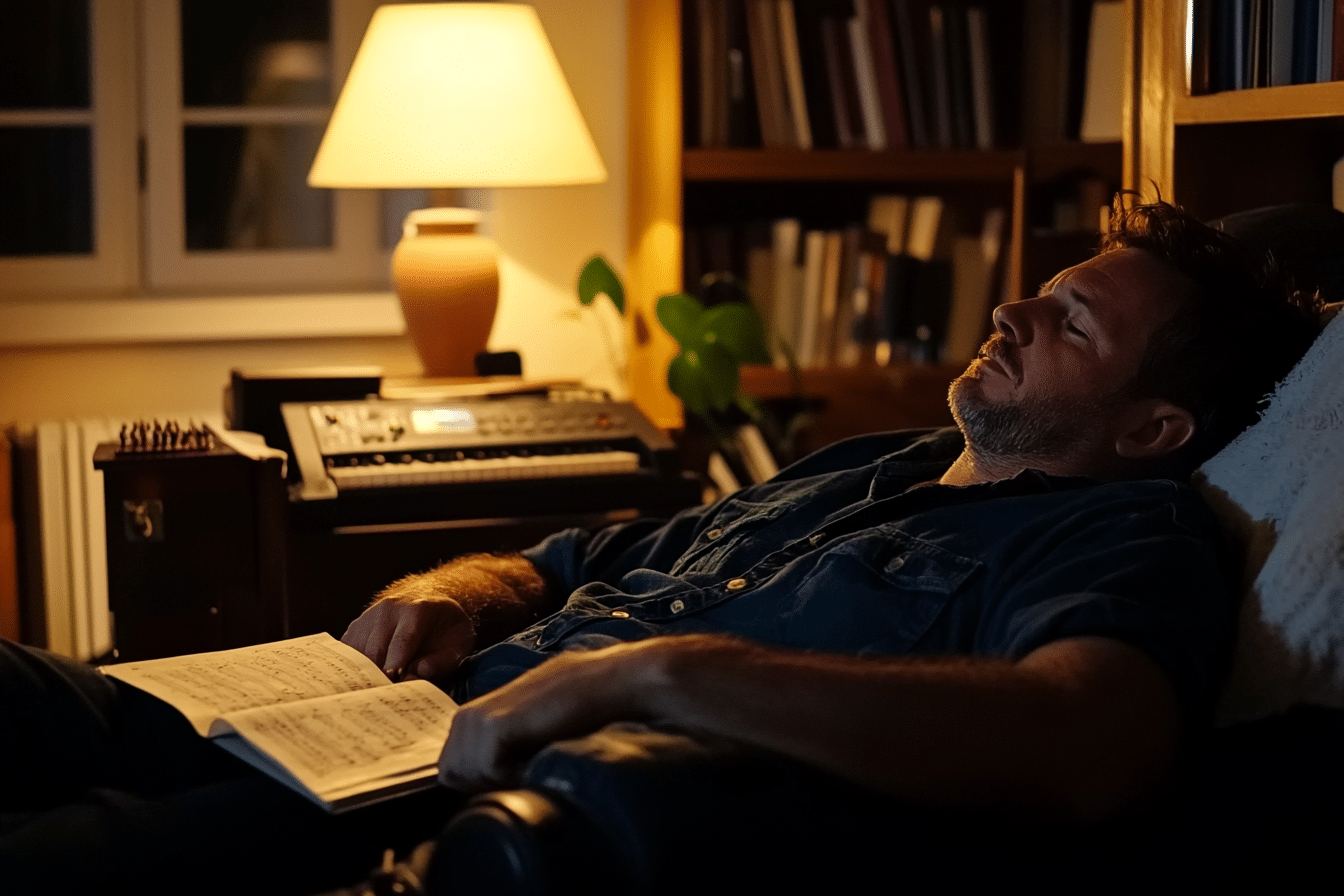Common Mental Disorders in Men: A Comprehensive Overview
Mental health disorders affect men differently than women, and unfortunately, they often remain undiagnosed or untreated. This comprehensive guide delves into common mental health conditions in men, such as anxiety, depression, and substance abuse. You’ll learn to identify the signs of these conditions and understand their unique impacts on men’s lives.
By gaining this knowledge, you’ll be better prepared to support yourself or loved ones in seeking appropriate therapy and managing stress. Whether you’re concerned about your mental health or someone close to you, this guide provides valuable insights to help navigate the complex world of men’s mental health.
Understanding Anxiety Disorders in Men for Better Mental Health
Anxiety disorders are prevalent mental health issues affecting men’s well-being. This section explores common types, symptoms, and treatment options for anxiety in men. You’ll learn about the impact on daily life, including relationships with alcohol and anger.
Common Types of Anxiety Disorders Affecting Men
Men experience various types of anxiety disorders, including generalized anxiety disorder, social anxiety disorder, and panic disorder. These conditions can significantly impact your daily life, potentially leading to substance abuse as a coping mechanism. Recognizing these disorders is crucial for seeking appropriate help from a health professional.
Other anxiety disorders affecting men include obsessive-compulsive disorder and post-traumatic stress disorder. These conditions may coexist with other mental health issues like bipolar disorder, complicating diagnosis and treatment. If you’re experiencing persistent anxiety symptoms or suicidal ideation, it’s essential to consult a mental health expert for proper evaluation and support.
Symptoms of Anxiety Disorders in Men
Recognizing mental health symptoms of anxiety disorders in men is crucial for early intervention and effective treatment. You may experience physical signs such as rapid heartbeat, sweating, and insomnia, as well as psychological symptoms like excessive worry and difficulty concentrating. Society’s expectations often lead men to downplay these symptoms, contributing to the social stigma surrounding mental health issues.
Men with anxiety disorders might exhibit irritability, restlessness, or anger, which often differs from how women talk about their symptoms. These mental health symptoms can impact various aspects of life, including work performance and relationships. If you’re experiencing persistent anxiety symptoms, seeking professional health care is essential for proper diagnosis and treatment. Remember that anxiety disorders are treatable, and addressing them can significantly improve your quality of life:
- Recognize physical and psychological symptoms
- Understand the impact of societal expectations
- Seek professional help for proper diagnosis
- Explore treatment options to improve well-being
Treatment Options for Anxiety Disorders in Men
Treatment options for anxiety disorders in men include therapy, medication, and lifestyle changes. Cognitive-behavioral therapy (CBT) can help you manage anxiety by addressing negative thought patterns and behaviors. Medications like selective serotonin reuptake inhibitors (SSRIs) may be prescribed to alleviate symptoms. Research shows that combining therapy and medication often yields the best results for managing anxiety and improving sleep quality.
Lifestyle modifications play a crucial role in anxiety management. Regular exercise can reduce irritability and boost body image, while mindfulness practices help calm racing thoughts. If you’ve experienced an injury or trauma contributing to your anxiety, specialized therapies like Eye Movement Desensitization and Reprocessing (EMDR) may be beneficial. Remember, seeking professional help is essential for developing an effective treatment plan tailored to your specific needs.
The Impact of Anxiety on Men’s Daily Lives
- Anxiety disorders can significantly impact your daily life, affecting work performance, relationships, and overall well-being.
- You may experience heightened aggression or turn to addiction as coping mechanisms, leading to destructive patterns.
- These behaviors can strain personal and professional relationships, potentially escalating to violence if left unaddressed.
- Managing emotions becomes challenging with anxiety, often resulting in difficulty expressing yourself or regulating reactions.
Ways to Manage Anxiety Effectively
Managing anxiety effectively involves a personalized approach that caters to your unique needs. Consider incorporating the following strategies to alleviate anxiety symptoms and enhance your overall health:
- Engage in regular physical activity to ease stress-induced headaches and improve well-being.
- Develop coping mechanisms and relaxation techniques, such as deep breathing exercises, meditation, or progressive muscle relaxation, to navigate anxiety in daily life.
- Explore lifestyle changes that may help bridge the gender gap in anxiety responses.
- Remember that with the right treatment and support, you can manage your symptoms effectively, reducing the risk of anxiety-related complications that could have severe consequences if left unchecked.
Exploring Depression Trends and Their Effects on Men
Depression trends in men reveal unique challenges, including fear of stigma and impact on brain function. This section examines types of depression, signs, and symptoms specific to men. You’ll learn about the role of stigma, treatment methods, and self-help strategies. Understanding these aspects can help address mental health concerns, including related conditions like schizophrenia and body dysmorphic disorder.
Types of Depression Prevalent in Men
Mental illness affects men differently, with common types including major depressive disorder, persistent depressive disorder, and seasonal affective disorder. You may experience worry, loneliness, and fatigue as symptoms of these conditions. The Mayo Clinic reports that men often exhibit unique signs of depression, such as increased irritability and risk-taking behaviors.
Changes in appetite and sleep patterns are also prevalent in men with depression. You might notice weight fluctuations or difficulty maintaining a regular sleep schedule. Recognizing these symptoms is crucial for seeking appropriate treatment. Here are key types of depression affecting men:
- Major depressive disorder
- Persistent depressive disorder
- Seasonal affective disorder
- Bipolar disorder (depressive episodes)
- Atypical depression
Signs and Symptoms of Depression in Men
Identifying signs of depression in men can be challenging due to societal expectations and stigma. You might experience persistent low mood, loss of interest in activities, and changes in sleep patterns. Panic attacks and heightened anxiety can also accompany depression, affecting your daily functioning and relationships.
Men often exhibit unique symptoms of depression, such as increased irritability and risk-taking behaviors. You may notice mood swings, ranging from periods of low energy to brief episodes of mania. The prevalence of depression in men is influenced by various factors, including genetics, environment, and social policy. Recognizing these symptoms is crucial for seeking appropriate treatment and support.
The Role of Stigma in Men’s Mental Health
Stigma plays a significant role in men’s mental health, often preventing men from seeking help for depression and other disorders. You may experience feelings of sadness or inadequacy, believing these emotions conflict with societal expectations of masculinity. This stigma can lead to unhealthy coping mechanisms, impacting your lifestyle and increasing the risk of suicide.
Breaking down the stigma surrounding men’s mental health is crucial for preventing suicide and enhancing overall well-being. You can start by joining peer support groups or trying meditation practices to manage your symptoms. Remember, reaching out for professional help is a sign of strength, not weakness. By openly addressing mental health concerns, you contribute to creating a more supportive environment for all men struggling with depression. This openness can foster understanding and compassion, encouraging more men to seek the help they need and deserve.
Treatment Methods for Depression
Treatment methods for depression often involve a combination of therapy and medication. You may benefit from cognitive-behavioral therapy, psychodynamic therapy, or interpersonal therapy to address negative thought patterns and improve your quality of life. Antidepressants, prescribed by a healthcare professional, can help regulate brain chemistry and alleviate symptoms of depression.
The Anxiety and Depression Association of America recommends a holistic approach to treatment. This may include lifestyle changes such as regular exercise, which can boost mood and improve blood flow to the brain. Your healthcare provider might also suggest alternative therapies like acupuncture or light therapy, depending on your specific needs and the type of depression you’re experiencing.
Practical Strategies for Managing Depression
Practical strategies can empower you to manage depression effectively. Engaging in regular physical activity and maintaining a healthy diet can improve your mood and combat social isolation. You can also explore mindfulness techniques or meditation to reduce stress and enhance your overall well-being, challenging traditional notions of masculinity that may hinder seeking help.
Consider joining support groups or online communities to connect with others facing similar challenges, regardless of your socioeconomic status. Be cautious of self-medicating with drugs or alcohol, as these can exacerbate depression symptoms. Instead, focus on developing healthy coping mechanisms and seek professional help if you find yourself struggling to manage your depression independently.
Recognizing Substance Abuse Disorders Among Men
Substance abuse disorders significantly impact men’s mental health, affecting cognition and physical activity. Understanding substance abuse disorders is crucial for improving national health outcomes and reducing emergency department visits related to addiction.
Understand How Substance Abuse Impacts Men’s Mental Health
Substance abuse significantly impacts your mental health, often serving as a risk factor for various psychological disorders. While men and women can develop most of the same mental disorders, the way they experience and cope with these issues may differ. As a man grappling with substance dependence, you might find yourself facing increased anxiety, depression, or a worsening of existing phobias. The Mental Health Foundation highlights that substance abuse can change the way your brain works, potentially leading to long-lasting changes in your thoughts and emotions.
Seeking help from a licensed psychologist or therapist, or physician is crucial for addressing substance abuse and its effects on your mental well-being. Early intervention can prevent the development of chronic conditions and improve your overall quality of life. Understanding the connection between substance abuse and mental health is the first step towards recovery:
- Recognize the impact of substances on your mental state
- Identify co-occurring mental health issues
- Seek professional help for comprehensive treatment
- Develop coping strategies to manage cravings and triggers
- Build a support network for long-term recovery
Risk Factors for Substance Abuse in Men
You face several risk factors for substance abuse as a man, including societal pressure to conform to traditional masculine norms. This pressure can lead to unhealthy coping mechanisms, especially in communities where substance use is normalized.
Your genetic predisposition and family history play significant roles in determining your susceptibility to substance abuse. Environmental factors, such as stress during pregnancy or early childhood trauma, can increase your risk. Understanding these factors helps you recognize potential vulnerabilities and seek appropriate support to maintain your mental health.
Common Substances That Men May Abuse
As an adult male, you may find yourself vulnerable to abusing various substances, including alcohol, tobacco, and prescription medications. These substances can lead to confusion and impaired judgment, affecting your daily life and relationships. It’s crucial to recognize that substance abuse often stems from underlying mental health issues or attempts to self-medicate.
Seeking information about substance abuse and treatment options is crucial for your well-being. Many insurance plans cover addiction treatment, making it more accessible. If you’re grappling with substance abuse, remember that help is always within reach through professional support and community groups. Common substances that men often struggle with include:
- Alcohol
- Tobacco
- Prescription opioids
- Marijuana
- Cocaine
- Methamphetamine
Treatment Approaches for Substance Use Disorders
Treatment approaches for substance use disorders often involve a combination of therapy and medication. You may benefit from cognitive-behavioral therapy to address underlying feelings and behaviors associated with substance abuse. In some cases, medicine can help manage withdrawal symptoms and reduce cravings. If you’ve experienced sexual abuse, specialized trauma-informed care may be incorporated into your treatment plan.
Comprehensive treatment programs also address eating habits and nutrition, as substance abuse often impacts your physical health. Engaging in group therapy can provide peer support and help you develop coping strategies. Some treatment centers offer fundraising assistance to make care more accessible. Your treatment plan may include:
- Individual therapy sessions
- Group support meetings
- Medication management
- Nutritional counseling
- Aftercare planning
The Importance of Prevention Strategies for Men
Prevention strategies play a crucial role in addressing substance abuse disorders among men. The American Psychological Association emphasizes the importance of early intervention to reduce the risk of developing long-term addiction issues. By focusing on prevention, you can significantly decrease your chances of engaging in binge drinking and other harmful substance use behaviors.
A systematic review of prevention programs has shown that addressing societal stereotypes and promoting healthy coping mechanisms can improve life expectancy for men at risk of substance abuse. You can take proactive steps to protect your mental health and reduce the likelihood of developing a substance use disorder:
- Educate yourself about the risks of substance abuse
- Develop healthy stress management techniques
- Build a strong support network
- Seek professional help if you notice early warning signs
- Participate in community-based prevention programs
Understanding Post-Traumatic Stress Disorder in Men
Post-Traumatic Stress Disorder (PTSD) significantly impacts men’s mental health. Effective treatments and coping strategies are crucial for managing PTSD symptoms, including agoraphobia and symptoms of panic, such as shortness of breath.
The Causes of PTSD Commonly Found in Men
You may experience PTSD due to various traumatic events, including combat exposure, accidents, or assault. These experiences can lead to feelings of guilt and a tendency towards silence about your struggles.
Drinking often becomes a coping mechanism for men with PTSD, masking underlying symptoms and complicating recovery. You might find yourself experiencing dissociation as a defense against traumatic memories, which can interfere with daily functioning and relationships. Understanding these common causes can help you recognize symptoms and seek appropriate support.
The Symptoms of PTSD Specific to Men
You may experience PTSD symptoms differently as a man, often manifesting as irritability, anger, or aggressive behavior. These reactions can impact your stress management abilities and overall physical health. It’s crucial to recognize these signs and seek help from a provider who understands male depression and PTSD-specific treatment approaches.
Physical symptoms of PTSD in men can include sleep disturbances, hypervigilance, and difficulty concentrating. You might notice changes in your appetite or experience unexplained pain. Addressing these symptoms with a healthcare provider is essential for developing an effective treatment plan that considers both your mental and physical well-being.
The Connection Between Trauma and Mental Health
Accordoing to WithTherapy, trauma significantly impacts your mental health, often leading to post-traumatic stress disorder (PTSD) and other psychological issues. As you navigate the aftermath of traumatic experiences, you may notice changes in your thought patterns and emotional responses. Mental health research shows that trauma can alter brain structure and function, affecting your ability to manage stress and maintain healthy relationships.
Seeking support from a healthcare provider is crucial for addressing trauma-related mental health concerns. Your physical health can also be affected by untreated trauma, making it essential to prioritize both mental and physical well-being. Implementing mental health tips, such as practicing mindfulness and maintaining a consistent sleep schedule, can complement professional treatment and aid in your recovery process.
Effective Treatments for PTSD
You can benefit from effective treatments for PTSD at a mental health office, where behavioral therapies are often combined with medication. Cognitive-behavioral therapy (CBT) and Eye Movement Desensitization and Reprocessing (EMDR) are proven approaches that help you process traumatic memories and develop coping strategies. The Anxiety and Depression Association of America (ADAA) recommends these evidence-based treatments for managing PTSD symptoms.
Your mental health provider may also suggest medication to address specific symptoms of your disorder. Antidepressants and anti-anxiety medications can help alleviate some mental illnesses associated with PTSD. It’s crucial to work closely with your healthcare team to find the right combination of treatments tailored to your needs. Effective PTSD treatments include:
- Cognitive-behavioral therapy (CBT)
- Eye Movement Desensitization and Reprocessing (EMDR)
- Prolonged Exposure therapy (PE)
- Medications (SSRIs, SNRIs)
- Group therapy and support groups
Coping Strategies to Manage PTSD Symptoms
Managing PTSD symptoms requires a multi-faceted approach tailored to your individual needs. You can start by practicing mindfulness techniques, such as deep breathing exercises or meditation, to help ground yourself during moments of distress. Engaging in regular physical activity can also reduce stress and improve your overall well-being, making it easier to cope with PTSD symptoms.
Developing a strong support network is crucial for managing PTSD. You can join support groups specifically for men with PTSD, where you’ll find understanding and shared experiences. Additionally, learning to identify and challenge negative thought patterns through cognitive restructuring can help you gain control over intrusive thoughts and memories. Consider implementing these coping strategies to manage your PTSD symptoms:
- Practice mindfulness and relaxation techniques
- Engage in regular physical exercise
- Join a support group for men with PTSD
- Learn and apply cognitive restructuring techniques
- Establish a consistent sleep routine
Support Resources for Men Dealing With PTSD
You can access various support resources designed specifically for men dealing with PTSD. The Veterans Crisis Line offers confidential support 24/7, providing immediate assistance if you’re experiencing a mental health crisis. Local VA centers often have specialized PTSD programs tailored to men’s needs, offering both individual and group therapy options.
Online platforms like PTSD Coach provide valuable tools for managing symptoms at your own pace. This app, developed by the National Center for PTSD, offers self-assessment tools, relaxation techniques, and educational resources to help you understand and cope with your condition. Remember, seeking support is a sign of strength, and these resources are available to help you on your journey to recovery.
Conclusion
Understanding common mental disorders in men is crucial for promoting overall well-being and improving quality of life. From anxiety and depression to substance abuse and personality disorders, recognizing symptoms and seeking appropriate treatment can significantly impact men’s mental health outcomes. By addressing stigma, exploring effective treatments, and developing coping strategies, men can take proactive steps towards better mental health management. Ultimately, raising awareness about these disorders and available resources empowers men to seek help, fostering healthier individuals, relationships, and communities.
Reach Out to the Therapy Group of DC
If you’re ready to take the first step towards better mental health, reach out to the Therapy Group of DC today. We specialize in evidence-based therapies tailored to help men navigate their mental health challenges effectively. Our compassionate team of mental health professionals is dedicated to providing personalized care, ensuring you receive the support you need to overcome obstacles and improve your well-being. Don’t let societal stigma hold you back from seeking the help you deserve. Contact us now to get started.
Frequently Asked Questions
How do anxiety disorders specifically manifest in men?
Men with anxiety disorders may experience physical symptoms like muscle tension and restlessness, as well as irritability, difficulty concentrating, and sleep problems. They might mask their anxiety through anger, substance use, or overworking, often struggling to seek help due to societal expectations of masculinity.
What are the common signs of depression in men?
Men with depression may experience irritability, anger outbursts, fatigue, sleep disturbances, and physical pain. They might engage in risky behaviors, withdraw from relationships, or lose interest in activities. Some may struggle with concentration, feel hopeless, or have thoughts of self-harm.
How prevalent is substance abuse among men?
Substance abuse is a significant issue among men, with studies indicating higher rates compared to women. Approximately 10-15% of adult males struggle with alcohol use disorder, while illicit drug use affects around 9-12% of men. These rates vary based on factors like age, socioeconomic status, and cultural background.
How does PTSD affect men differently from women?
Men with PTSD may exhibit more aggressive behavior and substance abuse, while women often experience higher rates of depression and anxiety. Both genders can struggle with emotional regulation, but men typically have more difficulty seeking help due to societal expectations of masculinity.
Fast Facts About Men’s Mental Health
Introduction to Men’s Mental Health
Men’s mental health is a critical aspect of overall health and well-being, yet it often remains a taboo topic. Many men struggle to open up about their mental health problems, leading to delayed or foregone treatment. This reluctance can exacerbate mental health issues and increase the risk of severe consequences, including suicide. It is essential to break down the stigma surrounding men’s mental health and encourage men to seek help when needed. By fostering an environment where men feel comfortable discussing their mental health issues, we can promote better mental health outcomes and improve overall well-being.
Prevalence of Men’s Mental Health Disorders
Mental health disorders are prevalent among men, with approximately 1 in 5 men experiencing a mental health problem each year. The most common mental health disorders affecting men include depression, anxiety, substance use disorder, post-traumatic stress disorder (PTSD), and bipolar disorder. These conditions can significantly impact daily life, relationships, and overall well-being. Understanding the prevalence of these common mental health disorders is crucial for recognizing the need for mental health treatment and support. By raising awareness about these issues, we can encourage more men to seek help and improve their mental health outcomes.
Barriers to Men Seeking Mental Health Services
Despite the prevalence of mental health disorders, many men face significant barriers to seeking mental health services. Stigma is a major obstacle, as societal expectations often discourage men from expressing vulnerability or seeking help. Many men feel that seeking help is a sign of weakness or believe they should be able to “tough it out” on their own. Additionally, a lack of awareness about mental health resources and services can prevent men from getting the help they need. Some men may not know where to turn for help or may feel uncomfortable discussing their mental health problems with a healthcare provider. Addressing these barriers is essential for improving access to mental health care and encouraging men to seek the support they need.
Increasing Access to Care for Men
Increasing access to care is critical to improving men’s mental health. This can be achieved through various strategies, including reducing stigma around men’s mental health, increasing awareness of mental health resources and services, and improving access to mental health care, including online and telehealth services. Encouraging men to seek help when needed and providing education and training for healthcare providers on men’s mental health issues are also essential steps. By implementing these strategies, we can create a more supportive environment for men to address their mental health issues and seek appropriate treatment.
Economic Costs of Mental Health Disorders
Mental health disorders can have significant economic costs, including lost productivity, absenteeism, and healthcare expenses. According to the World Health Organization (WHO), the global economic cost of mental health disorders is estimated to be over $2.5 trillion annually. In the United States, the economic cost of mental health disorders is estimated to be nearly $300 billion annually. Investing in mental health services and programs can help reduce these costs and improve overall well-being. By prioritizing mental health treatment and support, we can alleviate the economic burden of mental health disorders and enhance the quality of life for individuals affected by these conditions.




